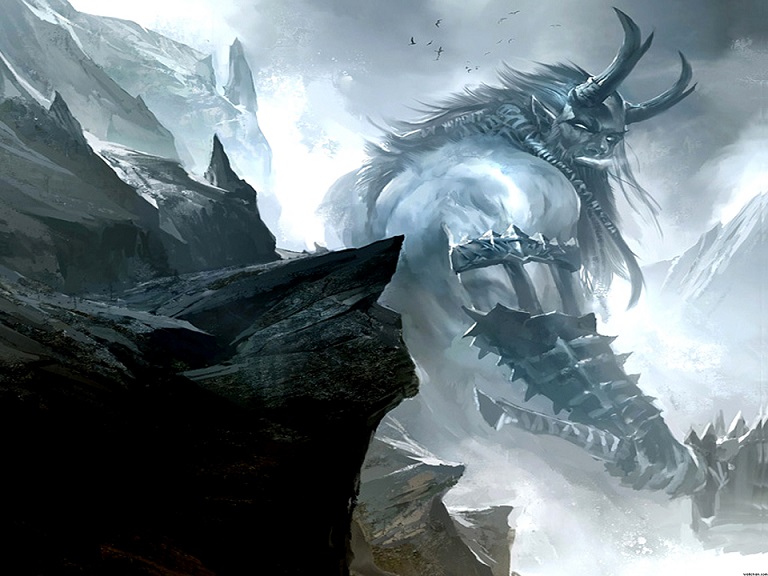Perses
Titan god of destruction
The Titans were members of a mythological race of giants who ruled the Earth until overthrown by Zeus and the Olympian Gods during a great battle known as the Titanomachy. Perses was the son of Crius and Eurybia from the very first dynasty of Titan gods and the husband of Asteria , the Titan goddess of Necromantia.
Perses belongs to the second generation of Titan gods and was worshipped as the God of Destruction. The Titans were the descendents of the first gods or divinities, called the primeval gods, who were born out of Chaos. The children of the Titans included the famous Olympian gods who included Zeus, Hera, Hestia, Hades and Poseidon.
The legend and myth about Perses, the god of destruction and the Titans has been passed down through the ages and plays an important role in the history of the Ancient World of Greece and the study of the Greek classics.
Perses features in the Creation myth of the ancient Greeks which are based on the idea that these supernatural beings resembled mortals but possessed great mystic powers.
The children of Perses and Asteria
The wife of Perses was Asteria the dark Goddess of Necromancy, the practice of witchcraft by communicating with the dead, especially in order to predict the future. It is therefore not surprising that their union produced Hecate, the goddess of magic, witchcraft, the night and the moon and the 'Queen of Ghosts'.
The domains of Hecate extended over earth, the sky and hell and for this she is represented in works of art as a triple divinity.
[1]
PERSES OF COLCHIS
In Greek mythology Perses was the name of a mythical king, although there was also a separate Perses who was a Titan god. King Perses is a minor figure in the tales of Aeetes and Medea.
Perses was a son of the sun god Helios and the Oceanid Perseis, making him brother to Aeetes, Circe and Pasiphae.
Perses is the least well-known of the four siblings, for Aeetes is famed as the King of Colchis during the adventures of the Argonauts; Circe was a famous sorceress; as was Pasiphae, who also happened to be the husband of King Minos of Crete.
Perses himself was a king, for in Greek mythology Perses was originally said to be king of Tauric Chersonese; an area which today would be considered the Crimean Peninsula.
Perses though is not famous for being king of Tauric Chersonese but for his later taking of the throne of Colchis.
Colchis had been ruled for a number of years by Perses’ brother Aeetes. Aeetes lived in fear that he would lose his kingdom, for it was prophesised that this would occur if the Golden Fleece ever left Colchis. Of course, the Golden Fleece did depart when it was taken by the Jason and the Argonauts, with the assistance of Aeetes’ daughter Medea.
Perses would seize the throne of Colchis from Aeetes; some tell of this being a simple event which saw Perses throw his brother into a prison cell, whilst others tell of a full blow civil war occurring between the sons of Helios.
Eventually Medea, and her son Medus, returned to Colchis, for there was no place left in Greece for Medea to safely go to.
In the simplest version of the tale Medea simply killed her uncle, and restored her father to the throne, others tell of a slightly more complex end to Perses.
In this version, Medea and Medus came to Colchis separately. Medus arrived first but Perses recognised him as a descendant of Aeetes, and having been warned about the dangers posed to him by his brother’s bloodline, Perses had Medus thrown into a prison cell, near to that of Aeetes. Medus realising the danger he was in tried to convince Perses that he was not Medus, but was instead Hippotes, a Corinthian prince.
Medea would then return to Colchis, but Perses did not recognise his own niece, and Medea managed to convince the king that she was actually a priestess of Artemis, and thus someone to be respected.
Medea did not at the time realise that Medus was in prison, but hearing that Hippotes was there, was concerned that Hippotes was in Colchis to kill her, for she had killed Hippotes father.
Hippotes was given over to Medea so that she might deal with him, but of course Medea recognised her own son, and the freed Medus was given a sword, which he then used to kill Perses. Aeetes was thus released, and regained his throne from the now dead Perses.
It is occasionally said that the goddess Hecate was a daughter of Perses, although Hecate is more commonly said to be the daughter of the Titan Perses. Confusingly though, Hecate was a major figure of worship in Colchis, and it was said that Medea was one of her priestesses within the city.













